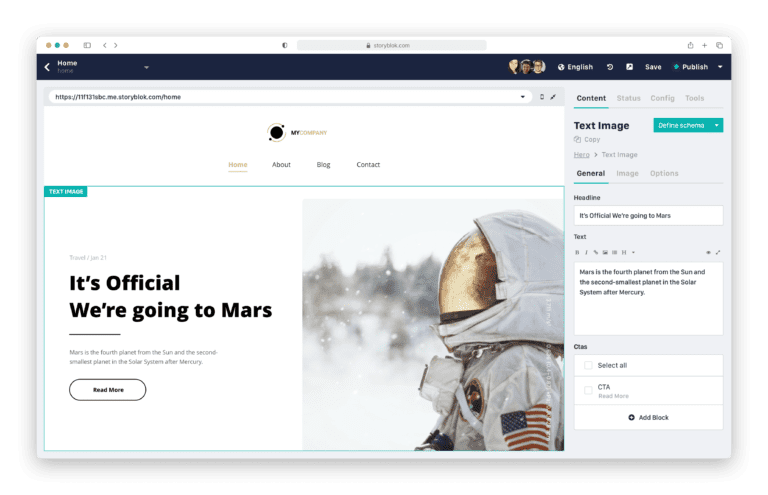Storyblok launched a €1.5 million partner fund. Each partner receives €5,000 to market the content management system (CMS).
Storyblok is on the rise. The content management system (CMS) is used by more than 70,000 developers and marketers. The idea is similar to WordPress, Hubspot and Joomla, but the technology is distinct.
Marketing agencies favour Storyblok because the system is extremely compatible with custom apps. Storyblok favours marketing agencies because their end users pay for software licences. Storyblok launched a €1.5 million fund to support its partner channel.
Each partner receives 5,000 euros to promote the CMS. In addition, partners receive 10 percent of the revenue that Storyblok generates from their clients. Partners are also entitled to free development environments and support.
Headless
Storyblok is a headless CMS. Users receive a database and an interface for content management. Users have full control over the content’s presentation. For example, by designing a proprietary website or app.
A traditional CMS decides on the content’s presentation. When expanding a webshop or website to iOS, Android or another platform, options are limited.
In practice
Suppose you run a webshop. You started out with a website, but want customers to be able to order via an iOS and Android app. You’ll need a way to bring the webshop’s database to iOS and Android. After all, working with three different backends is highly inefficient.
With a bit of luck, iOS and Android are supported by your current CMS. In any case, options will be limited. Chances are you’re stuck with a template, providing little to no control over the apps’ design. A headless CMS offers more freedom. You can choose to develop your own Android or iOS app, or hire an agency for custom apps and designs.
Storyblok does not interfere with the content’s presentation. Content is sent with APIs to a location of choice. When adjusting a product or article in the CMS, the change is applied to every app and website.
